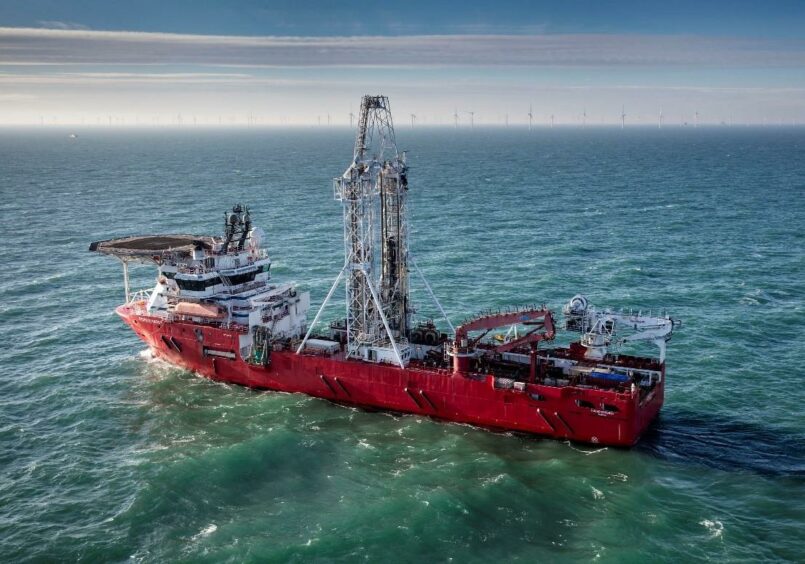 © Supplied by Fugro
© Supplied by Fugro Dutch geoservices firm Fugro has sealed a contract to carry out sustainable site investigations for a major offshore wind project.
BP (LON: BP) and EnBW are forging ahead with the development of their new offshore wind farms, Morgan and Mona, in the Irish Sea.
Once complete, the developments, BP’s first UK offshore wind farms, will have a combined generating capacity of 3 gigawatts.
That means they will be able to supply green power to around 3.4 million households.
Fieldwork will run from May to September, with the site located about 18 miles off the coast of north Wales and north-west England.
The area is known for its severe currents and challenging offshore environment.
Fugro will deploy its Fugro Synergy and Normand Mermaid vessels to complete the geotechnical investigations.
The operations will also use of Fugro’s Seacalf Mk V Deepdrive system for seabed cone penetration tests (CPTs), as well as the Seadevil for vessel-based and seafloor downhole testing.
By using innovative equipment, Fugro expects operational emissions to be cut by up to 40% when compared to using traditional methods.
Following the fieldwork, an extensive laboratory testing programme will be delivered by the company’s in-house laboratory engineers, allowing all samples to be analysed for foundation designs.
Dennis Koenen, Fugro’s global director geo-data acquisition marine site characterisation, said: “With access to in-house foundation experts and state-of-the-art assets, we’re able to deliver high-quality insights as early as possible in the design process. With this Geo-data, bp and EnBW will be able to effectively guide the planning, design and installation of the Morgan and Mona wind farms – critical assets to achieving sustainability targets and delivering green electricity to the region.”
BP announced its entry into the UK offshore wind market last year by securing leases for a combined three-gigawatts of projects in the Irish Sea.
CEO Bernard Looney said the development would deliver on BP’s requirement for an 8-10% return on its investment “at a minimum”.
Alongside German renewables firm EnBW, the oil giant will operate and develop the leases.
They expect to make four annual payments of £231million before a final investment decision is made.
